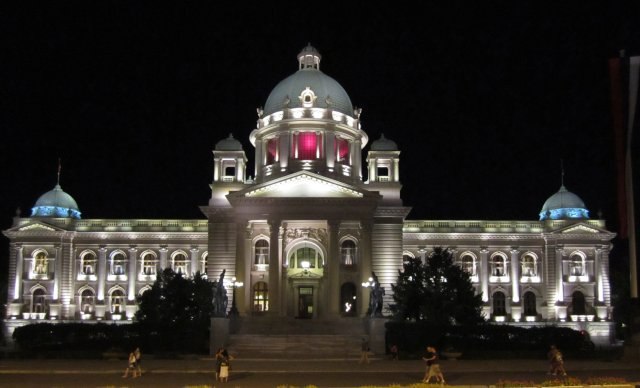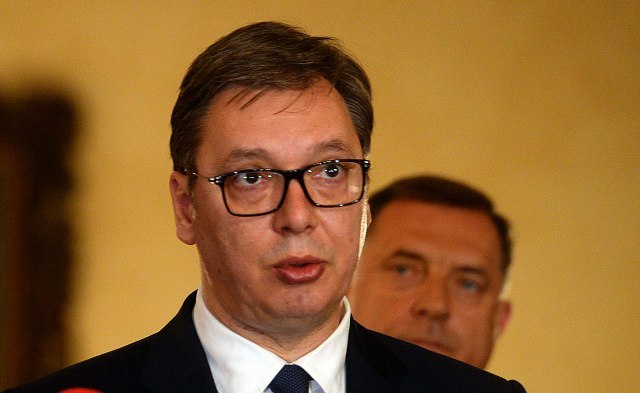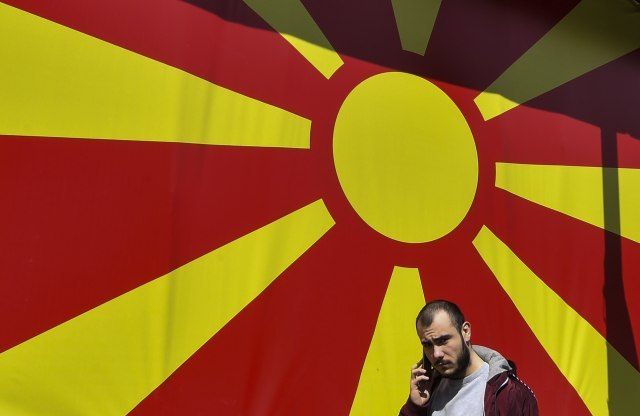SManalysis
New York Times

One writer chronicles his voyage to the island of Ithaca, where Odysseus was once reputedly king.
By Pico Iyer
May 13, 2019
I STEPPED INTO a taxi on my arrival in Athens and mentioned the name of one of the city’s most central five-star hotels. The driver was thrown into a frenzy, and not only because he seemed to speak no English. As we zigzagged at high speed through the jampacked streets, he tapped frantically on his smartphone and started calling friends, none of whom were any help at all. When, finally, we pulled up at the entrance, I was greeted by a wild-haired, gesticulating front-desk man who said, “We’re so sorry, sir. We have a problem, a big problem, today. So we have made a reservation for you in our other hotel. Half a block away.”
The problem, the taxi driver conveyed, was that every toilet in the hotel had flooded.
In the fancy new place where I ended up — it took us 20 minutes to go around the corner thanks to narrow, one-way streets — I walked into an elevator to be confronted by two thickly bearded Orthodox priests in full clerical dress crammed into the same small space, cellphones protruding from their pockets as they wished me, in easy English, “Good evening.” The mayhem of the little lanes I’d just come through, the sunlit dishevelment of the buildings, which seemed to be collapsing as much as rising up, the graves in the middle of the city: I felt, quite happily, as if I were not in Europe but in Beirut or Amman.
The real antiquity in Greece, I thought — and this is its enduring blessing, for a visitor — is its daily life; on this return trip, retracing a course I’d followed 35 years before, from the classical sites of the Peloponnese (ill-starred Mycenae and healing Epidaurus) all the way to Odysseus’ storied home on Ithaca, I was noticing that it’s precisely the slow, human-scaled, somewhat ramshackle nature of arrangements here that gives the country much of its human charm. Yes, you can still see Caravaggio faces around the Colosseum in Rome; along the ghats in Varanasi, India, you’re among the clamor and piety of the Vedas. But in Greece, it’s the absence of modern developments — of high-rises and high-speed technologies — that can make you feel as if you’re walking among the ancient philosophers and tragedians who gave us our sense of hubris and catharsis.
Locals of the town of Nafplio fish at the harbor, which overlooks the Argolic Gulf on the eastern side of the Peloponnese.
Credit
Alex Majoli
Locals of the town of Nafplio fish at the harbor, which overlooks the Argolic Gulf on the eastern side of the Peloponnese.CreditAlex Majoli
Forget the fact that the Klitemnistra hotel is down the street from Achilles Parking; what really gives Greece its sense of being changeless is that the Lonely Planet guidebook gives you a cure for the evil eye, and a man is crossing himself furiously as he attempts to double-park. The Grecian formula that keeps the place forever young — and old, and itself — has less to do with the monuments of kings and gods than simply with the rhythms of the day: Fishing boats are heading out before first light and the shepherd’s son is leading the priest’s niece under the olive trees in the early morning. Black-clad women are gossiping in the shade and donkeys clop and stop over ill-paved stones in the siesta-silent, sunlit afternoon. At night, there’s the clatter of pots from the tavernas and the sound of laughter under lights around the harbor.
ADVERTISEMENT
All in a landscape where the deep blue sea surrounds you on every side, and the indigo and scarlet and orange flowerpots are bright with geraniums and begonias. It’s not just that you feel the presence of a rural past everywhere in Greece; it’s that, amid this elemental landscape of rock and cobalt sky and whitewashed church, you step out of the calendar altogether and into the realm of allegory.
Sheep graze near a cemetery outside Ithaca’s isolated village of Anogi.
Credit
Alex Majoli
Image
Sheep graze near a cemetery outside Ithaca’s isolated village of Anogi.CreditAlex Majoli
MY FIRST FULL day in Greece on this trip — I’ve been visiting the country for more than 50 years — I made my way to Mycenae, the 3,300-year-old acropolis 75 miles from Athens that was the turbulent base for the House of Atreus. After five decades of reading about the slaughter of Agamemnon in his bathtub, I was chilled: by the stubby rocks across the forbidding hillside, by the sound of the wind whipping in my ears, by the silence even amid the crowds. The whole site is monitory and stark, and the watchtower hilltops, made for spotting invaders, go with the tholos tombs and Bronze Age relics that encircle the red-tiled villas of the Peloponnese.
Barely 30 miles away, Epidaurus is tonic light to Mycenae’s shadow, a reminder of why we cherish ancient Greece as the home of harmony and wisdom. I stepped into the sunken dormitory known as the Abaton, inside Asclepius’ sanctuary there — the walls tell of visitors 24 centuries ago being healed by their dreams — and couldn’t resist the curative spell. The amphitheater in the distance offers up perfect proportions and acoustics; yellow butterflies were flitting between groves of trees along the so-called Sacred Way. Mycenae may be the black-and-blood-red landscape of Greek tragedies, but Epidaurus gives us the clarity and higher geometry of Pythagoras. In Homer, of course, both worlds magically converge in stories of how people try to clear their minds of the bad dreams of jealousy, murder and nostalgia.
Editors’ Picks
From ‘Smallville’ to a Sex Cult: The Fall of the Actress Allison Mack
The Best Green Salad in the World
Laura Dern Embraces the Messiness of Human Life
ADVERTISEMENT
Yet in all honesty, it was in Nafplio, my everyday base for these excursions across the Peloponnese, that I heard most consistently the whisper of the past. There was a raggedness to the narrow passageways of its Old Town, the uneven stones along its steep staircases, that jolted me into a sense of intimacy; as I roamed around the climbing lanes, I could hear bells clanging and the sound of cups rattling, a spoon against a pan. The interiors of the little homes were dark, cozy, plain, and there was a Sunday-morning stillness that took me back to the unhurried corners of the world.
Crones were walking, arm in arm, down to the water as the sun declined, past cafes where nine or 11 men sat together, nursing their small coffees in silence. Chants came down to us from a 15th-century shrine to the Virgin, tucked into a crag overlooking the sea. Candles flickered in little memorials along the waterfront, around framed portraits of lost sons, much as they might on the mountain roads of Bolivia.
Returning to my hotel room, I walked out onto my terrace and saw a onetime executioner’s home in front of me, a few hundred yards across the water. Up above was the Palamidi castle, thick with prison cells and “murder holes” through which defending warriors could project arrows and scalding water. Visiting another hotel that morning, I’d stepped out of the breakfast room and found myself on the battlements of a cluster of fortresses known to Venetians and Crusaders. Just down the street, in the incense-haloed church, a painting recalled this as the site where the first governor of an independent modern Greece had been assassinated, in 1831, by one assailant bearing a knife, one carrying a pistol.
New York Times
A bust of Odysseus in another of Ithaca’s northern villages,
Stavros.Credit Alex Majoli
GROWING UP IN England, I was encouraged to feel that Greece was the alpha and omega of the ancient world as my friends and I puzzled over its strange letters in our little green copies of Xenophon and Plato. My classmates regularly took off for Mount Athos, the independently ruled peninsula of 20 Orthodox monasteries that British travelers from Robert Byron and Patrick Leigh Fermor to William Dalrymple and, in fact, Prince Charles, have long haunted. Even now, one can watch monks there observe the Julian calendar and tell the hours, as Colin Thubron notes in his recent novel, “Night of Fire,” “in the old Byzantine mode.”
The frescoes on the holy mountain “seemed to return us to a primitive, purer time,” Thubron writes, “closer to scripture,” and this sense of Greece as an antechamber to the modern moment has never seemed to die. “There must be a God,” Bruce Chatwin wrote as he surveyed “an iron cross on a rock by the sea” on Mount Athos. The famously whimsical nomad startled his friends by planning to be baptized on the island; his funeral was held in the icon-cluttered Orthodox Cathedral of St. Sophia in Central London.
I thought of all this as I began riding buses around the Peloponnese, reminded at every turn that it’s precisely what makes Greece something of an outlier in the European Union that gives it its almost Asian magnetism. The first time I boarded a long-distance bus, for the two-hour trip from Athens to Nafplio, I saw six good-luck charms plastered on its windows and another dangling from the driver’s mirror. The trucks that passed us, as in India, bore hand-painted signs that said “God bless.”













